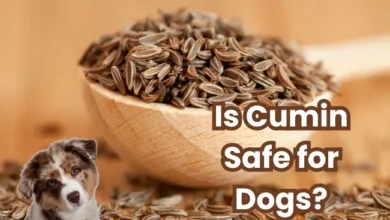
If you’re a dog owner who loves sharing meals with your furry friend, you might be wondering, Can dogs have Worcestershire sauce? While this popular condiment adds a burst of flavor to many dishes, it hides some surprising dangers for our pets. Worcestershire sauce contains ingredients that can be harmful—even toxic—to dogs, and many pet owners aren’t aware of the risks involved.
In this article, we’ll reveal 5 shocking facts about Worcestershire sauce and why it’s best to keep it away from your dog’s bowl. Understanding these facts will help you make safer choices and protect your beloved companion from unexpected health problems. So before you share that tasty sauce, read on to discover what every dog owner needs to know!
What Is Worcestershire Sauce? Can Dogs Have Worcestershire Sauce?
Worcestershire sauce is a tangy, savory condiment that’s loved by many people around the world. It’s often used to add a burst of flavor to meats, marinades, stews, and even cocktails like the classic Bloody Mary. But what exactly is in this popular sauce?
Common Ingredients in Worcestershire Sauce
Here’s a quick look at the typical ingredients in Worcestershire sauce :
- Vinegar (usually malt or white vinegar)
- Salt
- Sugar or molasses
- Garlic
- Anchovies (fish)
- Tamarind extract
- Onions
- Spices (like cloves, chili pepper, and mustard)
- Sometimes, soy sauce or other flavorings
These ingredients come together to create a bold, complex flavor that’s hard to replicate.
Worcestershire Sauce for Dogs: Is It Safe?
Can Dogs Have Worcestershire Sauce? While Worcestershire sauce is a kitchen staple for humans, it’s not made with dogs in mind. In fact, it can be risky for your furry friend.
Why Is Worcestershire Sauce Not Dog-Friendly?
Let’s break it down:
- High Salt Content: Too much salt can lead to dehydration, high blood pressure, or even salt poisoning in dogs.
- Sugar: Extra sugar isn’t healthy for dogs and can contribute to obesity and dental problems.
- Garlic and Onion: Both are toxic to dogs and can cause serious health issues, including damage to red blood cells.
- Anchovies and Tamarind: While small amounts of fish might be okay, anchovies in sauce form are often too salty. Tamarind is not toxic, but it’s not necessary for dogs and could upset their stomachs.
- Spices: Many spices used in Worcestershire sauce can irritate a dog’s digestive system.
What If My Dog Eats Worcestershire Sauce?
Can Dogs Have Worcestershire Sauce? If your dog sneaks a lick or two, don’t panic. Watch for symptoms like vomiting or diarrhea and make sure they have access to fresh water. If your dog eats a larger amount, or if you notice any worrying symptoms, call your veterinarian right away for advice .
Actionable Advice for Pet Owners
- Keep Worcestershire sauce and similar conditions out of your dog’s reach.
- Don’t add Worcestershire sauce to your dog’s food, even as a treat.
- If you want to spice up your dog’s meals, try dog-safe options like plain cooked pumpkin or a splash of low-sodium bone broth.
- Always check with your vet before introducing new foods or seasonings to your dog’s diet.
Worcestershire sauce is a flavorful addition to many human dishes, thanks to its unique blend of vinegar, salt, sugar, garlic, anchovies, tamarind, and spices. However, it’s not safe or healthy for dogs. Stick to dog-friendly foods and treats to keep your pup happy and healthy .
Why Is Worcestershire Sauce Dangerous for Dogs?
Can Dogs Have Worcestershire Sauce? Worcestershire sauce might be a tasty addition to your meal, but it’s not a safe treat for your furry friend. Let’s break down why this popular condition can be risky for dogs.
High Salt and Sugar Content: Hidden Health Hazards
Worcestershire sauce is packed with salt and sugar, which can cause problems for dogs, especially if they eat more than a tiny taste.
- Salt: Dogs are more sensitive to salt than humans. Too much salt can lead to dehydration, high blood pressure, and even salt poisoning. Signs of salt poisoning include excessive thirst, vomiting, and confusion.
- Sugar: Extra sugar in a dog’s diet can contribute to obesity, dental problems, and even diabetes over time. Just like us, dogs are healthier with less sugar in their meals .
Toxic Ingredients: Garlic and Onion
One of the biggest dangers in Worcestershire sauce is its use of garlic and sometimes onion. Both belong to the allium family and are toxic to dogs.
- Allium Poisoning: Garlic and onion can damage your dog’s red blood cells, leading to a type of anemia called Heinz body hemolytic anemia. This is a serious condition that needs quick veterinary care.
- Symptoms to Watch For: If your dog eats food with garlic or onion, look for signs like weakness, pale gums, rapid breathing, and collapse. Even small amounts can be harmful, especially for smaller dogs .
Symptoms of Worcestershire Sauce Toxicity in Dogs
If your dog manages to sneak some Worcestershire sauce, keep an eye out for these symptoms:
- Vomiting
- Diarrhea
- Lethargy or unusual tiredness
- Loss of appetite
- Excessive drooling
If you notice any of these signs, especially after your dog eats something with Worcestershire sauce, it’s best to call your veterinarian for advice .
Is Worcestershire Sauce Bad for Dogs?
Can Dogs Have Worcestershire Sauce? In short, yes—Worcestershire sauce is bad for dogs. The combination of high salt and sugar, plus toxic ingredients like garlic and onion, makes it a poor choice for your pet’s diet. Even a small amount can upset their stomach or worse, depending on their size and sensitivity .
Actionable Advice for Pet Owners
- Keep Worcestershire sauce and similar conditions out of reach of your dog.
- Never add Worcestershire sauce to your dog’s food, even as a treat.
- If your dog eats a dish with Worcestershire sauce, monitor them closely and provide plenty of fresh water.
- Contact your vet if you see any worrying symptoms or if your dog eats a large amount.
Your dog’s health and happiness are what matters most. Stick to dog-safe treats and foods to keep those tails wagging!
What Happens If My Dog Eats Worcestershire Sauce?
- Describe possible outcomes from small accidental licks to larger ingestions.
- Emphasize the importance of monitoring symptoms and contacting a veterinarian immediately if large amounts are consumed.
- Provide practical advice for pet owners.
- Secondary keywords: dog eat Worcestershire sauce , Worcestershire sauce poisoning in dogs , veterinary advice for dogs eating Worcestershire sauce .
Can Dogs Have Any Safe Alternatives to Worcestershire Sauce?
Can Dogs Have Worcestershire Sauce? If you love adding flavor to your food, you might wonder if your dog can enjoy something tasty, too. While Worcestershire sauce is not safe for dogs, there are some dog-safe options that can make your pup’s meals a little more exciting.
Dog-Safe Flavor Alternatives
Instead of Worcestershire sauce, try these safe and simple ways to add flavor to your dog’s food:
- Fresh herbs: Parsley and oregano are gentle on your dog’s stomach and can add a fresh taste to their meals.
- Dog-friendly broths: Low-sodium chicken or beef broth (with no onions or garlic) can make kibble more appealing.
- Commercial dog sauces: Some pet stores sell sauces made just for dogs. These are designed to be safe and tasty for your furry friend.
- Pumpkin puree: Plain, unsweetened pumpkin is safe for most dogs and can add a hint of flavor and fiber.
Conditions to Avoid
Many common conditions are not safe for dogs. Here’s what to skip:
- Soy sauce: Too salty and can cause health problems.
- Relish: Often contains sugar, onions, and spices that are not safe for dogs.
- Ketchup: If you want to use ketchup, only offer a tiny amount and make sure it doesn’t contain onions, garlic, or xylitol (an artificial sweetener).
Actionable Advice for Pet Owners
- Always check the ingredient list before giving your dog anything new.
- Start with small amounts to make sure your dog tolerates the new flavor.
- If you’re unsure about a food or seasoning, ask your veterinarian for advice.
Can Dogs Have Worcestershire Sauce? Your dog doesn’t need fancy sauces to enjoy their food, but a little safe variety can make mealtime more fun. With a few simple swaps, you can keep your dog’s meals both tasty and healthy .
5 Shocking Facts About Dogs and Worcestershire Sauce
Can Dogs Have Worcestershire Sauce? Worcestershire sauce might be a favorite in your kitchen, but it’s a whole different story for your dog. Here are five shocking facts every pet owner should know about dogs and Worcestershire sauce:
- Even Tiny Amounts Can Be Harmful
Just a small lick of Worcestershire sauce can be risky for dogs. The sauce contains toxic ingredients that can cause health problems, even in small doses. - Garlic and Onion Can Cause Life-Threatening Anemia
Worcestershire sauce often contains garlic and onion, which are both toxic to dogs. These ingredients can destroy red blood cells and lead to a dangerous type of anemia. - High Salt Content Can Lead to Salt Poisoning and Heart Issues
The high salt levels in Worcestershire sauce can cause salt poisoning in dogs. Too much salt can also put stress on your dog’s heart and lead to dehydration or high blood pressure. - Dogs Cannot Digest Fermented Fish Proteins in the Sauce
Worcestershire sauce contains anchovies and other fermented fish proteins. Dogs have trouble digesting these, which can lead to stomach upset, vomiting, or diarrhea. - Immediate Veterinary Care Is Crucial If Large Amounts Are Ingested
If your dog eats a large amount of Worcestershire sauce, it’s an emergency. Quick veterinary care can make a big difference and may save your dog’s life.
ogs and Worcestershire sauce do not mix. Keep this condition far away from your furry friend to keep them safe and healthy. If you ever think your dog has eaten Worcestershire sauce, call your vet right away.
Conclusion: Keep Worcestershire Sauce Away From Dogs
Can Dogs Have Worcestershire Sauce? Let’s wrap up what we’ve learned about dogs and Worcestershire sauce. The key message is simple: dogs should never be given Worcestershire sauce . This popular condiment contains ingredients that can be very harmful to your furry friend, even in small amounts.
Key Takeaways
- Worcestershire sauce is not safe for dogs due to its high salt, sugar, garlic, and onion content.
- Even a small taste can be risky and may cause stomach upset or more serious health problems.
- If your dog accidentally eats Worcestershire sauce , watch for symptoms like vomiting, diarrhea, or lethargy, and contact your veterinarian right away.
What You Can Do
- Keep all conditions, including Worcestershire sauce, out of reach of pets.
- Educate family and friends about the dangers of sharing human foods with dogs.
- Consult your vet if you ever have questions about safe foods for your pet.
Help keep all dogs safe!
If you found this article helpful, please share it with other dog owners. Raising awareness can prevent accidents and keep our furry friends healthy and happy.
FAQ
Can dogs eat Worcestershire sauce?
No, dogs should not eat Worcestershire sauce. It contains ingredients like garlic, onions, salt, and spices that can upset your dog’s stomach or even be toxic in large amounts.
What are the symptoms if a dog eats Worcestershire sauce?
Common symptoms include vomiting, diarrhea, drooling, stomach pain, or tiredness. If your dog ate a lot, the signs may be more serious and need quick care.
Is Worcestershire sauce poisonous to dogs?
Yes, Worcestershire sauce can be harmful to dogs. It contains garlic and onions, which are toxic to dogs and may lead to serious health problems if eaten in large amounts.
What should I do if my dog eats Worcestershire sauce?
Call your vet right away. Give them details like how much your dog ate and how your dog is acting. Don’t try home treatments without expert advice.
Are there any safe sauces for dogs?
Yes, plain sauces like unsalted bone broth or pure pumpkin puree can be safe in small amounts. Always avoid sauces with garlic, onions, salt, or sugar.




